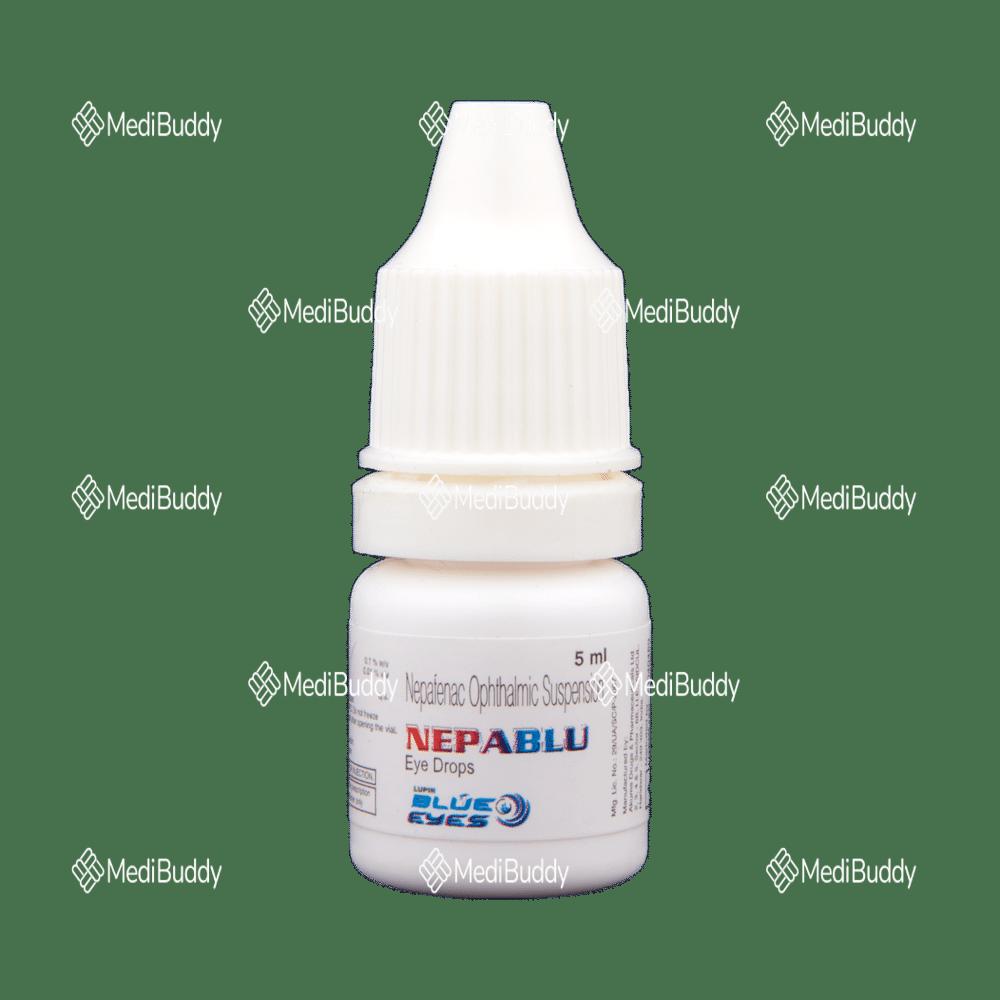Nepablu Eye Drop
By Nepablu
Rx
5ml Ophthalmic Suspension in a Bottle

Composition
Nepafenac(0.1% w/v)

Manufacturer - Lupin Ltd
Lupin Ltd, 3rd floor Kalpataru Inspire, Off. W E Highway, Santacruz (East), Mumbai 400 055. India

Expires on or after
July, 2027

liver
When it comes to the safety of using Nepablu Eye Drop in relation to liver issues, it is important to note that no interactions have been found or established. However, caution is advised for individuals with liver conditions. It is recommended to consult with your healthcare provider before using Nepablu Eye Drop if you have any liver issues. Your doctor can provide proper guidance and determine if it is safe for you to use this medication.

kidney
No interaction found with Nepablu Eye Drop and kidney issues.

alcohol
No interaction between Nepablu Eye Drop and alcohol has been found. Pregnant women should use caution.

driving
After using Nepablu Eye Drop, your vision may be blurry temporarily. It is advised not to drive until your vision clears up.

pregnancy
Nepablu Eye Drop may not be safe to use during pregnancy. Limited human studies indicate potential harm to the baby. Animal studies show adverse effects. Your doctor will assess the benefits and risks before prescribing. Consult your doctor before using.

breastfeeding
It is better to consult your doctor before using Nepablu Eye Drop during breastfeeding.
| Habit Forming | No |
| Chemical Class | Benzophenone Derivatives |
| Therapeutic Class | OPHTHAL |
| Action Class | NSAID's- Non-Selective COX 1&2 Inhibitors (Topical) |
₹227.39
₹252.65
10% OFF
Inclusive of all taxes
Content verified by

Dr. Mansi Chaudhari
MBBS - General Medicine
Last update on 01-Oct-2024










